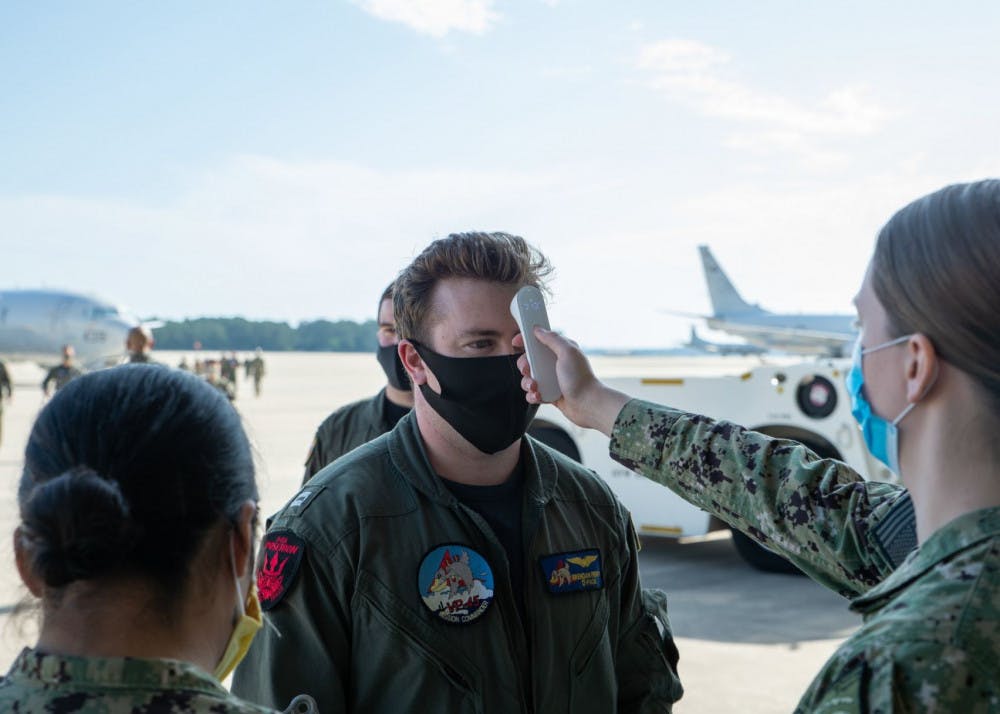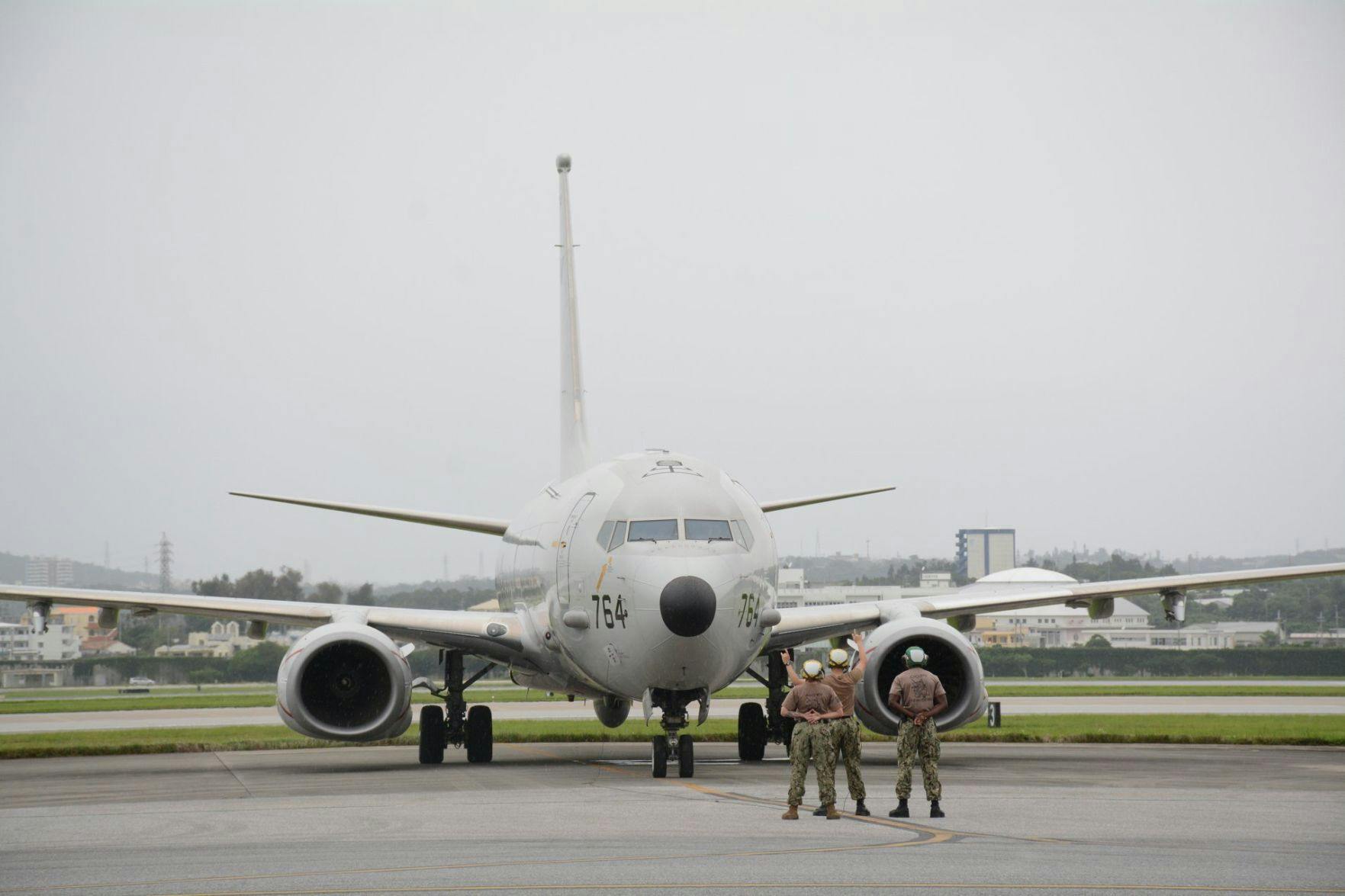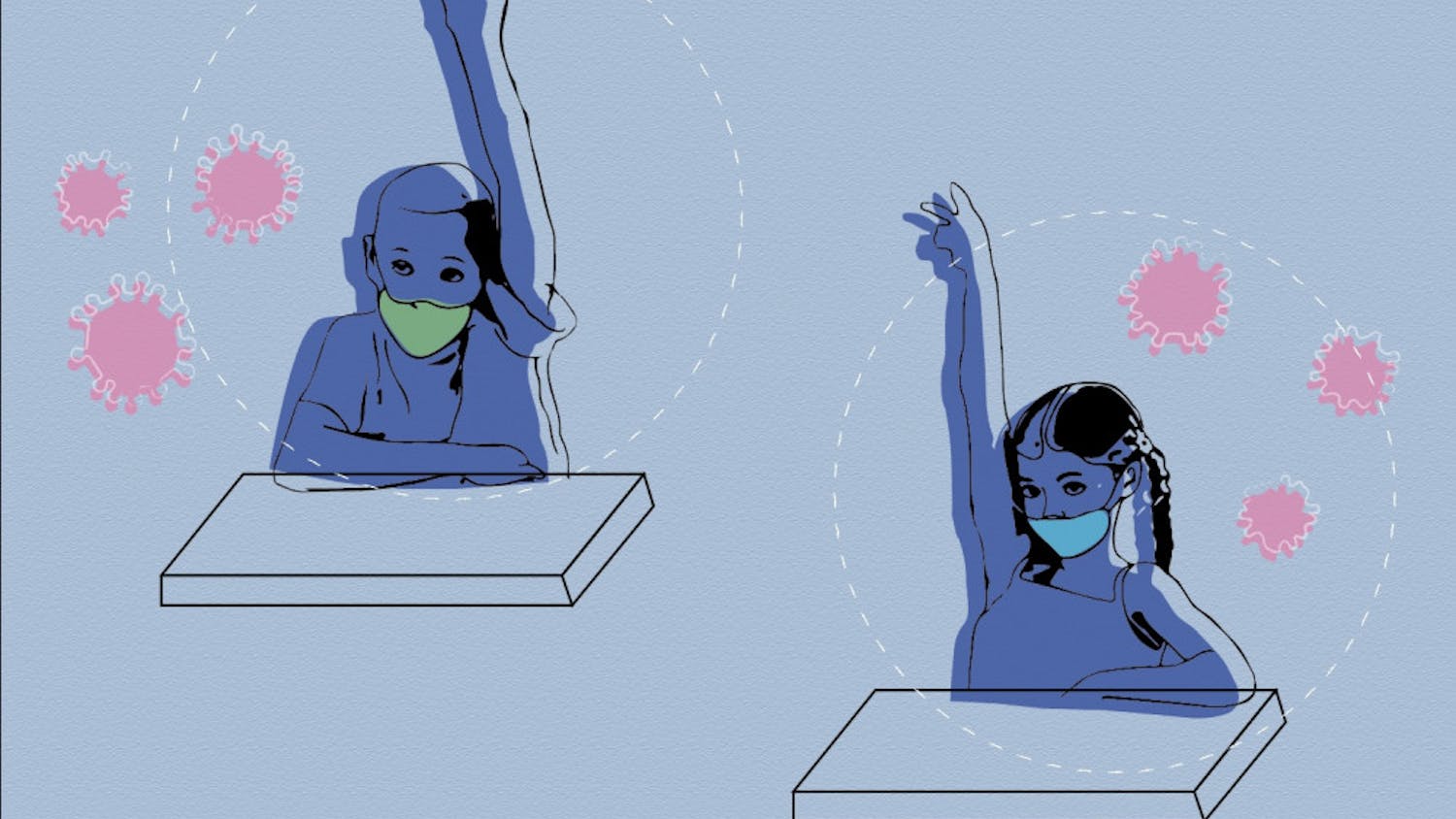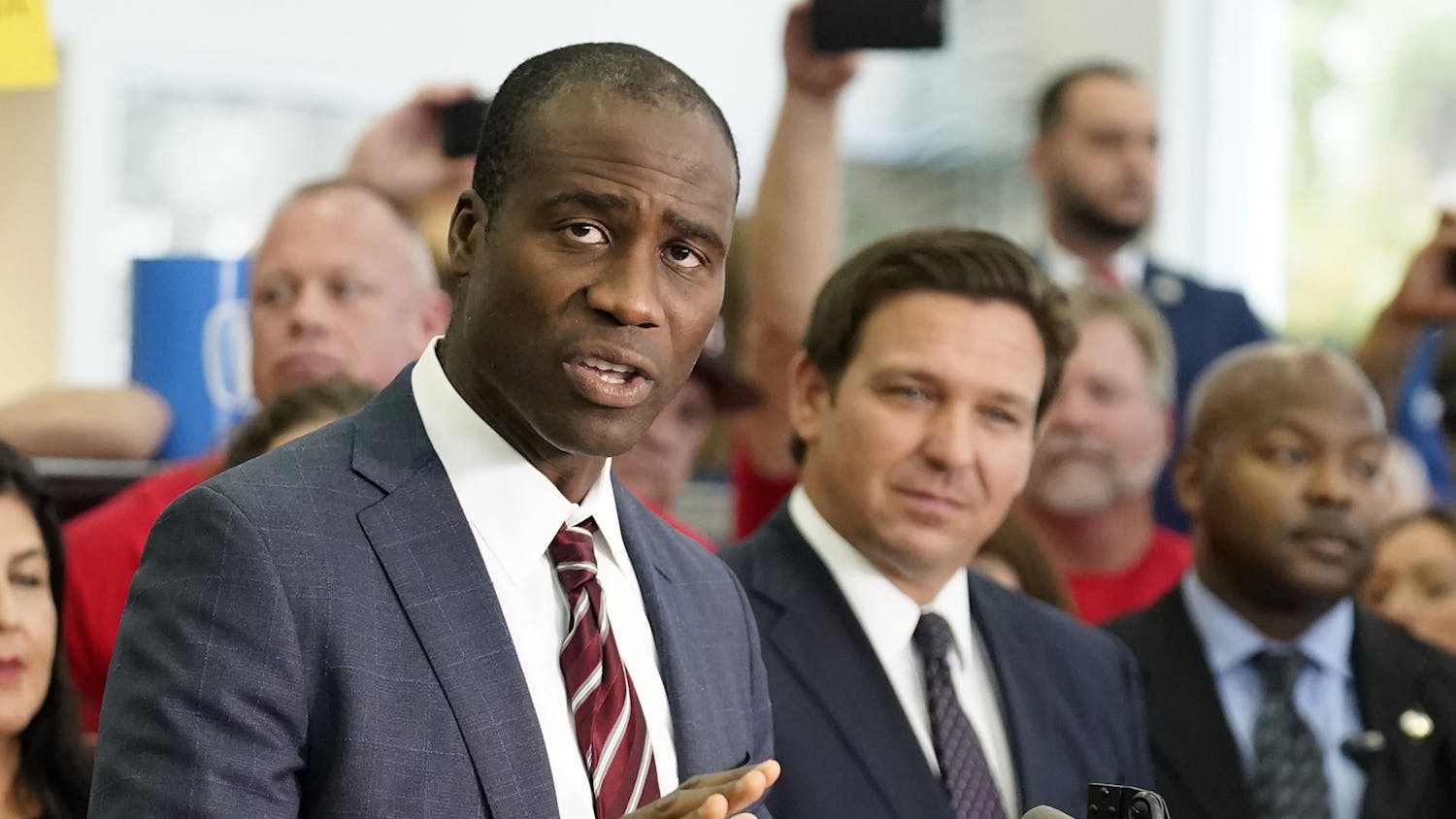
The crew is screened for COVID-19 symptoms upon return to the U.S.
From the cockpit, Commander Charles A. Larwood III took in the views of the Great Lakes as he flew a P-8A Poseidon back home to Jacksonville from Kadena, Japan, on May 21.
Larwood III, the Executive Officer to more than 300 sailors of Patrol Squadron Four Five, left the United States eight months ago when he was deployed to Kadena Air Base in Okinawa, Japan. The deployment had been extended from six months to eight because of flight restrictions due to the COVID-19 pandemic.
With more than 100,000 Americans dead from COVID-19, precautions to prevent the spread of COVID-19 have changed daily life. Deployed military personnel are returning to the U.S. this summer to new social-distancing guidelines and orders due to the pandemic.
Larwood III looked at the water and expansive countryside below him through clear skies, and said he felt comforted by the familiar landscapes. While the skies may have welcomed him home, the atmosphere when he landed was different from the other homecomings he’d experienced.
He said he was used to seeing bounce houses and popcorn machines dotting a sea of homemade posters held by families when he got off the plane. Flowers were usually given to their spouses in front of the crowd, and he would expect to get a lot of hugs.
But this time, families couldn’t gather outside the plane to wait. They had to stay in the parking lot. Sailors weren’t greeted by hugs. Instead, they were screened for COVID-19 symptoms with thermometers. The soldiers had to wear masks as they greeted the Commodore and other leadership who were there to celebrate their return.
“It was still, obviously, just a great feeling to walk off the aircraft, see your leadership there, know that you spent an extra two months on deployment working really hard,” Larwood III said. “Then walk out to the parking lot where your family was and be able to share that special moment out there with them.”

Flight line crew direct the aircraft as it taxis.
Larwood III said that even though things have changed in the U.S., the squadron has already been practicing recommended social distancing protocols and wearing masks for months. They traveled a lot while they were in Japan and saw the number of cases increase in Korea, the Philippines and Thailand before the U.S. was affected. His squadron began to make decisions that would mitigate risk of infections early on, Larwood III said.
To keep up morale, Larwood III said that sailors were encouraged to be open with their concerns throughout the deployment so they could support each other.
“It’s a little bit scary to know that you are overseas while your family is at home and you can’t be with them in that time,” Larwood III said.
He said sailors had family members who caught the virus. While no one died, the concern sailors felt was hard to soothe. Their jobs have inherent risks, and it’s important to remain focused, he said. Sometimes sailors who were having a hard time needed to be temporarily removed from the job so they could have time to work through their emotions.
Larwood III said sailors had the support of mental health professionals, chaplains and their chain of command to help them cope.
“I think a lot of the leadership revolves around refocusing the squadron’s efforts to what we can control,” he said.
Like the rest of his squadron, Larwood III is currently under restriction of movement orders (ROM), or quarantine, for 14 days. He’s home with his two boys, 3 and 7, and said he is enjoying reconnecting and spending time with his family.
He said that a few months ago, before everything happened, he had planned to take his wife out to a Jacksonville restaurant called Orsay, which serves French-American cuisine, when he got back. He was looking forward to the two of them sharing a plate of the restaurant’s escargot, which Larwood III said is fantastic.
ROM can be stressful for returning service members, said Deborah Bukolt, a counseling and advocacy program supervisor who works for the Fleet and Family Support Center at Naval Air Station Jacksonville. She said the ongoing pandemic complicates returning home even more.
They may have been looking forward to other plans when they got back, and the expectation to stay home instead can be challenging, she said.
“Especially for those service members who are returning home that are single and maybe in the expectation that they remain in a barracks room for 14 days after they’ve just returned from an eight month deployment,” Bukolt said. “I’m sure it’s very stressful for them and extreme for their mental and emotional health as well.”
Bukolt, whose spouse is in the military, said the day that sailors come home is her favorite holiday. She said the reunion is a very happy time, but it can also be very challenging because different roles have been established in the family while they have been gone. The spouse who stayed home takes on a bigger role in parenting.
Bukolt said it’s important that families know that homecomings aren’t all “rainbows and butterflies.” Normally, families are given a “reunion brief” to help prepare them for these challenges and so they know what to expect. But, because of COVID-19, they weren’t able to have these meetings.
The Fleet and Family Support Center, a hub of resources for those who live on the Jacksonville Navy base, has been compiling resources and putting out information to help manage families’ expectations.
One thing they warn against is a “change of command” at the door, or fully relinquishing parenting responsibilities to the returning spouse as soon as they get home.
“It really is a very different world that these service members are returning to, they might have their kids at home full-time homeschooling,” she said. “And spouses might need more support or be welcoming a relief as soon as their service member comes in the door.”
Despite this, Bukolt said military families are used to rapidly changing situations. Bukolt said she thinks military families might be better prepared to deal with the changing situation due to the pandemic because of the amount of uncertainty they already experience while they serve.
“It’s been very uncertain times for family members, for those that are leaving and those that are coming home,” she said. “But I think overall, military families are really resilient as a group and really capable of weathering the storm.”
Larwood III agrees and said having a strong support network back home is what allows sailors to do jobs overseas and to focus on the mission during such difficult times.
“The main message is: we’ll get through this as a family. We’ll get through this as a team. We’ll get through this as a nation,” he said.
Contact Kaelyn at kcassidy@alligator.org. Follow her on Twitter @kaelyn_cassidy.





